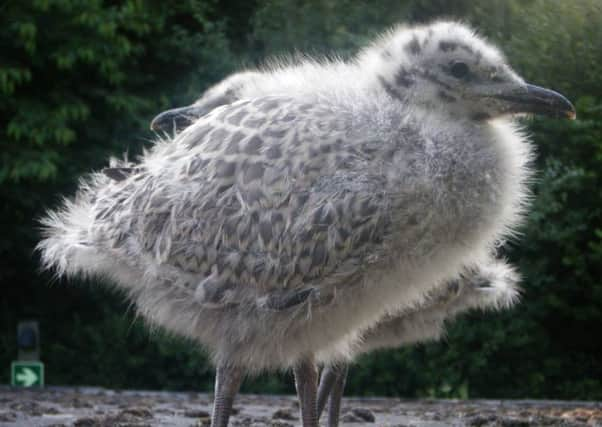RSPCA centre is inundated withrecord numbers of baby seagulls


The RSPCA’s Mallydams Centre, at Fairlight, has taken in a staggering 773 baby gulls already this year - more than any other part of the country.
But many of these gulls are being ‘rescued’ unnecessarily, because it’s so easy for people to mistake typical fledgling behaviour as a sign they have been orphaned, abandoned or are in need of help.
Advertisement
Hide AdAdvertisement
Hide AdLlewelyn Lowen, RSPCA Wildlife Information Officer advises that it’s always best to exercise caution if a young gull is causing concern.
He says: “We do get a lot of healthy young gulls - especially herring gulls - brought into our centres by well-intentioned individuals. That’s because the behaviour of these young gulls can sometimes lead people to believing they’ve been injured, abandoned or orphaned.
“If you are worried about a young bird, the golden rule is to monitor it from a distance. If you find a fully feathered gull the odds are that it is fine and it is just behaving naturally.
“At this time of year, young gulls are fledging. Although many are not yet able to fly, they will make their way down from their nest and spend some time being fed by their parents, while their flight muscles and feathers develop.
Advertisement
Hide AdAdvertisement
Hide Ad“Even if it’s on the ground, the young gull probably hasn’t been abandoned or orphaned and should be left alone unless it is sick, injured or in a dangerous situation, for example, in a busy road or car park, in which case they will need urgent help.
“If the little gull is still covered in fluffy ‘down’, and it runs away rather than flies, then it may need a little help.
“If it is safe for you to do so, you can put it on a roof or adjacent high spot such as a fence or wall near where you found it, then monitor it for 24 hours.
“If after 24 hours the bird’s condition has deteriorated, it has become clearly sick or injured, it is now in a dangerous place or its parents have not returned, call the RSPCA’s emergency line on 0300 1234 999.”